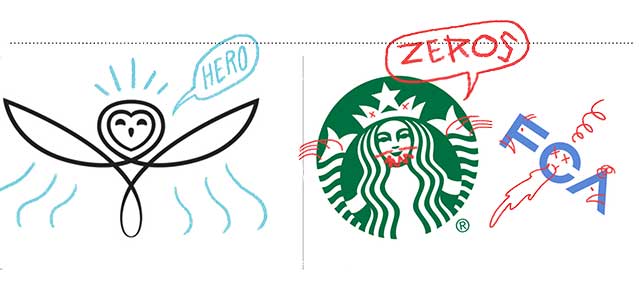Hero: Kering
French luxury goods holding company Kering took another step towards fully measuring its ecological footprint by publishing a consolidated 2014 environmental profit and loss (EP&L) report in November. This pioneering accounting system is intended to place a dollars-and-cents value on the environmental impact of its operations.
The results found that the company had produced an environmental impact of around € 793 million in 2014, a 2.2 per cent year over year increase. Ninety-three per cent of this impact was generated through its supply chain, with the remaining 7 per cent resulting from internal operations. A full quarter of Kering’s impact came from the leather used in many of the company’s products, while another 17 per cent was linked to cotton.
“In order to create a more sustainable and more resilient business model, we have embedded natural capital accounting in our business through our EP&L,” said François-Henri Pinault, chairman and CEO of Kering. “We are also further integrating the EP&L into key decisions and to monitor environmental impacts, such as climate change, on our supply chains and on the raw materials that are strategically important to us in the short and long term.”
Efforts to measure the company’s EP&L began with German sports apparel maker Puma, one of numerous luxury, sport and lifestyle brands owned by Kering. Puma issued its first EP&L in 2011, with the understanding that the methodology would remain a work in progress. Kering has since expanded the EP&L mandate across the entire company and made a number of significant adjustments to the formulas, including the adoption of a € 62 per tonne price on carbon.
One immediate goal, explained Marie-Claire Daveu, chief sustainability officer at Kering, is to help determine where improvements can be made. “Implementing supply-chain improvements take time, but already we have seen progress in several areas such as increased use of organic cotton for our luxury brands, increased use of recycled fibres and continued innovation in areas like heavy-metal-free tanning.”
Interestingly, the company has decided to leave all formulas used for the calculations available as open source, allowing other companies and organizations to build off of its work to date. One group working towards standardizing corporate accounting of natural capital is the Natural Capital Coalition, an organization striving to create “a world where business conserves and enhances natural capital.”
Zero: Fiat Chrysler Automobiles & Starbucks
The European Commission ruled in late October that Fiat Chrysler Automobiles and Starbucks had struck illegal tax agreements with authorities in Luxembourg and the Netherlands, respectively. In a landmark decision, Margrethe Vestager, the EU competition commissioner, determined that deals struck in private between the companies and authorities constituted unlawful state aid and ordered them to repay as much as € 15.8 million each.
“Tax rulings that artificially reduce a company’s tax burden are not in line with EU state-aid rules. They are illegal,” said Vestager in a press conference. “I hope that, with today’s decisions, this message will be heard by member state governments and companies alike. All companies, big or small, multinational or not, should pay their fair share of tax.”
According to the EU competition commissioner’s office, Dutch authorities gave assurances to Starbucks in 2008 that it could pay an inflated price for coffee beans from a British subsidiary and reallocate profit as tax-deductible manufacturing royalties instead. Combined, this had the effect of reducing Starbucks’ Dutch tax burden substantially. In the Fiat case, Luxembourg authorities agreed in 2012 to allow the auto manufacturer to provide loans for its operating companies at below market value. This effectively lowered Fiat’s tax burden in the country by a factor of 20, said Vestager.
Vestager was clear that this ruling was not an attempt to weigh in on overall corporate tax rates within individual member states, but rather a question of preferential treatment being offered to individual companies that effectively placed other firms at a competitive disadvantage.
This reasoning opens up the door to a litany of potential lawsuits as the EU begins to crack down on tax avoidance by multinationals. Documents released in 2014 by the International Consortium of Investigative Journalists known as the Luxembourg Leaks demonstrated that the country had struck hundreds of side deals offering preferential tax treatment to woo multinationals to settle in the country, propelling agreements like these into the headlines. Various countries within the EU are estimated to have agreed to thousands of these deals over the past decade without considering the possibility that they would later be under public scrutiny.
“We do not stop here,” said Vestager. “We continue the inquiries into tax rulings in all EU member states.”
EU investigators are currently looking to similar tax dealings by Apple and Amazon, with both companies signalling to investors that any possible fines or settlements assessed in the near future could be substantial.







